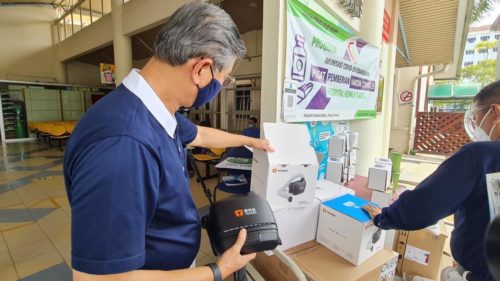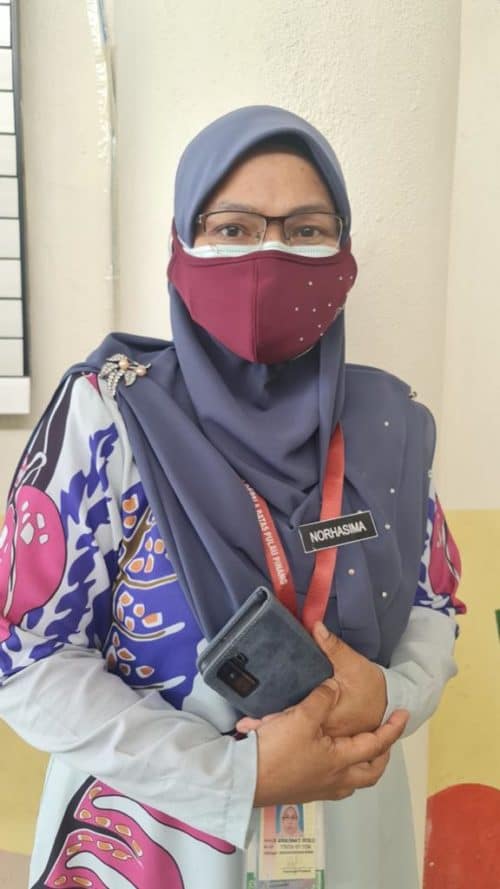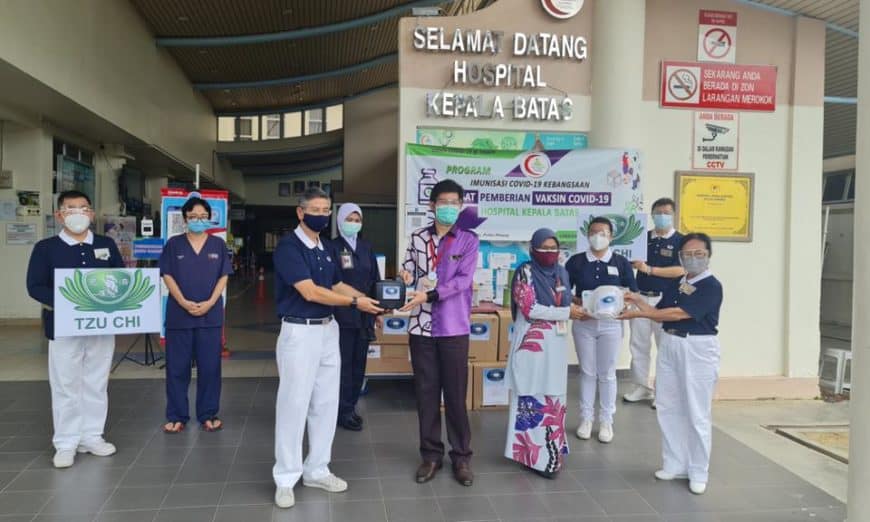THE Kepala Batas Hospital, which is a designated healthcare centre for Covid-19 patients, has received 10 units of powered air-purifying respirators (PAPR) and 15 units of twin oxygen flow meter from the Buddhist Tzu-Chi Merits Society Malaysia (Penang).
The society’s commissioner, Datuk Khoo Boo Leong said the contribution was an additional supply of medical equipment given to the hospital yesterday (July 23).
“Tzu-Chi strives to support hospitals and frontliners in the fight against Covid-19.
“According to our founder Master Cheng Yen, it is better to give than to receive and when we give, we must always give without expecting anything in return,’’ Khoo said after handing over the medical equipment to the representatives from Kepala Batas Hospital.

Khoo was bestowed his datukship by the Penang Governor Tun Ahmad Fuzi Abdul Razak in conjunction with the latter’s 72nd birthday celebration just this week.
On behalf of the Kepala Batas Hospital, its director Dr Norhasimawati Abdul Mutalib extended her gratitude to the Penang Tzu-Chi for their continuous assistance.
“Non-governmental organisations (NGO’s) such as Penang Tzu Chi have contributed in terms of medical and non-medical assistance to us.
“They have also supplied us healthy meals as well as given moral support via telephone counselling to our frontliners.
“This noble deed and their tremendous support mean a lot to the patients and also to our staff,” Dr Norhasimawati said.

Giving an update on the situation at the hospital, she said more beds have been added at all the existing high-risk wards.
“There is an increase from 134 to 199 beds for high-risk COVID-19 patients under category 4 and 5 who need oxygen and respiratory assistance.
“Over the past two weeks, we have been receiving critical cases where more than 45% of patients admitted need oxygen and respiratory assistance.
“The trend shows that the critical cases do not only involve high-risk groups but young people without health problems, between 20s and 30s are also increasing,’’ she added.
Story by Tanushalini Moroter
Pix courtesy of Penang Tzu-Chi

